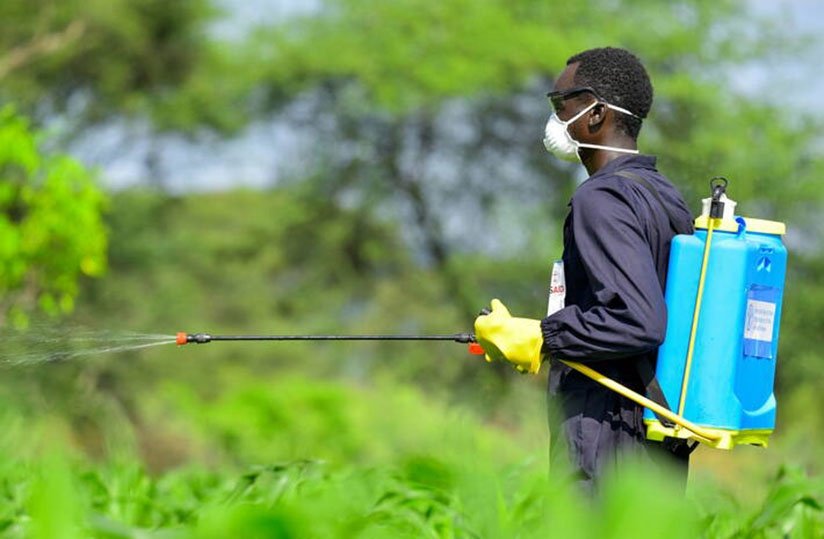By Zablon Oyugi June 23, 2025 — Kenya has banned 77 pesticide products and imposed strict restrictions on over 200 others in a sweeping regulatory overhaul aimed at protecting public health, ensuring food safety, and promoting sustainable agriculture.
The announcement has been made by Mutahi Kagwe, Cabinet Secretary for Agriculture and Livestock Development, in a press statement issued on June 23, 2025. According to Kagwe, the move follows a comprehensive scientific review of all pesticide active ingredients currently registered in Kenya, conducted by the Pest Control Products Board (PCPB).
“In line with our commitment to safeguard the health of our citizens and the environment, we have taken decisive regulatory action to withdraw and restrict pesticide products that pose unacceptable risks,” Kagwe said.
The PCPB’s review covered 430 end-use products and incorporated scientific data submitted by manufacturers, as well as international safety assessments. As a result, 77 products have been banned, while 202 others have been restricted for use on specific crops or under specific conditions. An additional 151 products are still under review, with final decisions expected by December 2025. Use or importation of these 151 products is currently suspended.
The Ministry also outlined new regulatory measures:
- All pest control products registered in Kenya must also be registered in their country of origin.
- Products banned under international multilateral environmental agreements will not be allowed in Kenya.
- Any product under review and not approved in the EU, U.S., Australia, or Canada will not be imported until further evaluation is complete.
Among the restricted active ingredients are:
- 2,4-D Amine (Herbicide) – Banned for use in coffee.
- Abamectin (Miticide) – Not allowed for use in open fields.
- Chlorpyrifos and Dimethoate (Insecticides) – Now limited to termite control only.
- Imidacloprid and Omethoate (Insecticides) – Restricted to non-open fields and non-edible crops.
- Propineb and Iprodione (Fungicides) – Prohibited on edible crops.
- Oxydemeton-methyl (Insecticide) – Importation suspended pending review.
Kagwe emphasized that the measures are part of Kenya’s broader strategy to align its agricultural practices with international safety and environmental standards. “We remain vigilant and committed to updating our regulatory frameworks in line with emerging scientific evidence and global developments,” he said.
To support farmers during the transition, the Ministry will increase education and extension services, and promote integrated pest management (IPM) practices as safer and environmentally friendly alternatives to chemical pesticides.
The Cabinet Secretary also confirmed that the Draft Pest Control Products Bill, designed to strengthen pesticide regulation in Kenya, has been approved by the Cabinet and will soon be tabled in Parliament.
Stakeholders across the agricultural value chain — including farmers, distributors, and agrochemical companies — have been urged to fully comply with the new measures.
Kagwe concluded, “Our goal is to ensure that Kenyan agriculture remains productive, sustainable, and safe for both people and the planet.”







